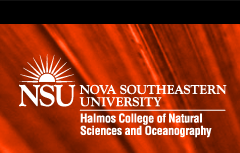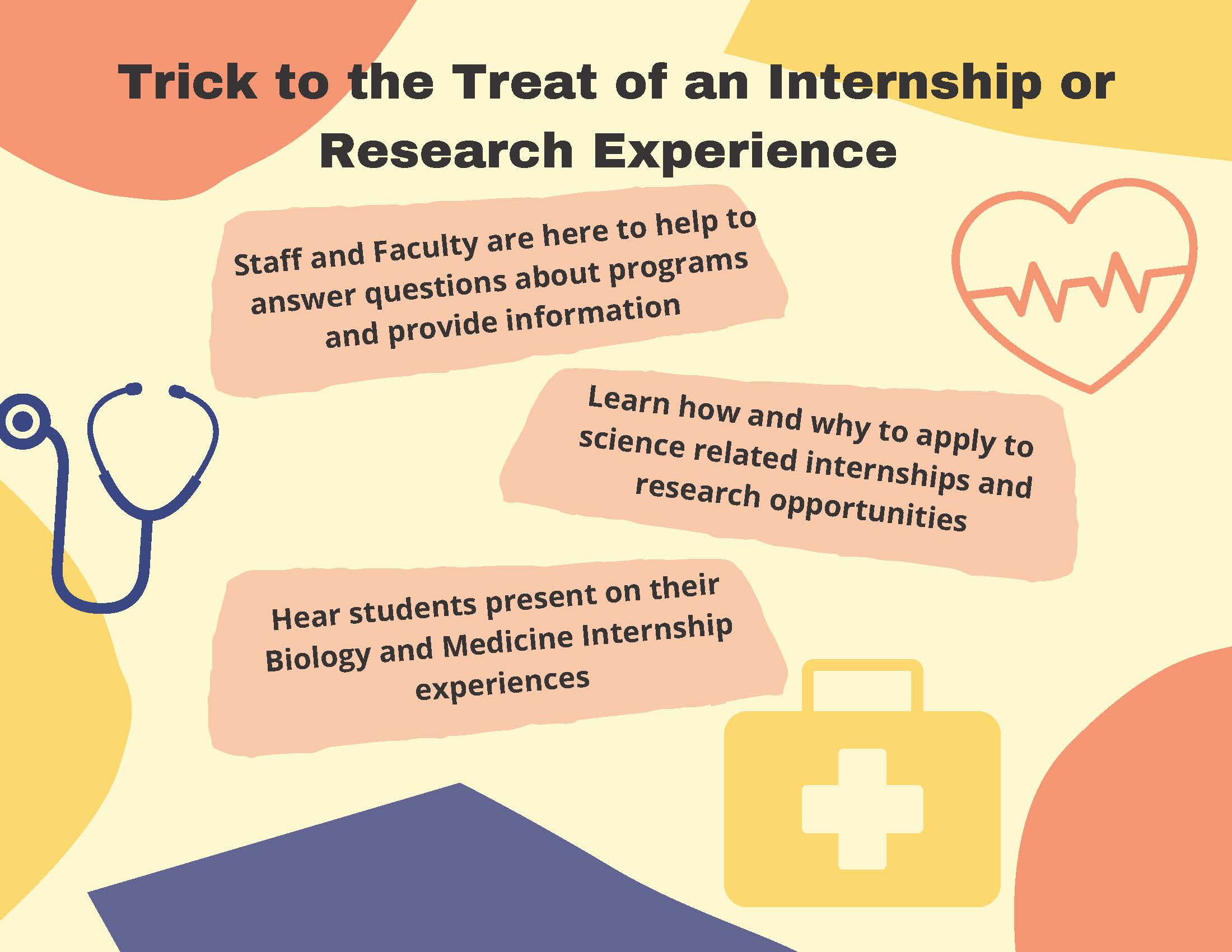Location
Desantis Atrium
Event Website
https://seaphages.org
Start Date
26-10-2022 11:30 AM
End Date
26-10-2022 1:00 PM
Description
Research opportunity targeted for freshmen and sophomores through the SEA-PHAGES program. The goal of the research is to discover new bacteriophages (viruses that infect bacteria) to help combat antibiotic resistance. Phage therapy is a promising alternative to conventional antibiotics. Phages have also been widely used in the food industry to prevent microbial growth on certain foods and are currently being explored as a method for bioremediation of oil spills and wastewater treatment.
Last year, my research team discovered two new bacteriophages: Genamy16 and NovaSharks that were able to infect the bacteria Gordonia rubripertincta. These phages can possibly be used for bioremediation and have been included in the SEA-PHAGES database, the National Library of Medicine (NIH), and have been approved for manuscript publication.
This research spans two semesters and can be found in the course catalog as BIOL 1000 (the first part of the course, offered in the Fall semester) and BIOL 1001 (the second part of the course, offered in the Winter semester).
The research experience provided by these courses is extremely valuable. Students gain real, translatable microbiology, molecular biology, genomics, and bioinformatics skills. As hinted at earlier, there is also the opportunity for students to become published co-authors as well as present at research conferences and symposiums.
[Antibiotic resistance is a global healthcare concern because it poses a threat to effectively treating bacterial infections and the need for alternative therapeutics are urgently required. Phage therapy, which uses viruses to treat bacterial infections, is a promising alternative to conventional antibiotics. Through the SEA-PHAGES (Science Education Alliance-Phage Hunters Advancing Genomics and Evolutionary Science) program at NSU, our goal was to discover new phages that infect the bacteria Gordonia rubripertincta, a gram positive soil bacteria that can breakdown hydrocarbons and is an opportunistic pathogen in catheter infections. Direct and enriched isolation protocols of soil samples from the South Florida region in tandem with bioinformatic genome analysis resulted in the discovery of two novel phages, Genamy16 and NovaSharks, that were able to infect G. rubripertincta. These phages will be included in the SEA-PHAGES database and can possibly be used for bioremediation.]
Included in
Bacteria Commons, Biology Commons, Genetic Processes Commons, Viruses Commons
SEA-PHAGES Research Opportunity
Desantis Atrium
Research opportunity targeted for freshmen and sophomores through the SEA-PHAGES program. The goal of the research is to discover new bacteriophages (viruses that infect bacteria) to help combat antibiotic resistance. Phage therapy is a promising alternative to conventional antibiotics. Phages have also been widely used in the food industry to prevent microbial growth on certain foods and are currently being explored as a method for bioremediation of oil spills and wastewater treatment.
Last year, my research team discovered two new bacteriophages: Genamy16 and NovaSharks that were able to infect the bacteria Gordonia rubripertincta. These phages can possibly be used for bioremediation and have been included in the SEA-PHAGES database, the National Library of Medicine (NIH), and have been approved for manuscript publication.
This research spans two semesters and can be found in the course catalog as BIOL 1000 (the first part of the course, offered in the Fall semester) and BIOL 1001 (the second part of the course, offered in the Winter semester).
The research experience provided by these courses is extremely valuable. Students gain real, translatable microbiology, molecular biology, genomics, and bioinformatics skills. As hinted at earlier, there is also the opportunity for students to become published co-authors as well as present at research conferences and symposiums.
[Antibiotic resistance is a global healthcare concern because it poses a threat to effectively treating bacterial infections and the need for alternative therapeutics are urgently required. Phage therapy, which uses viruses to treat bacterial infections, is a promising alternative to conventional antibiotics. Through the SEA-PHAGES (Science Education Alliance-Phage Hunters Advancing Genomics and Evolutionary Science) program at NSU, our goal was to discover new phages that infect the bacteria Gordonia rubripertincta, a gram positive soil bacteria that can breakdown hydrocarbons and is an opportunistic pathogen in catheter infections. Direct and enriched isolation protocols of soil samples from the South Florida region in tandem with bioinformatic genome analysis resulted in the discovery of two novel phages, Genamy16 and NovaSharks, that were able to infect G. rubripertincta. These phages will be included in the SEA-PHAGES database and can possibly be used for bioremediation.]
https://nsuworks.nova.edu/trick/2022/events/9


